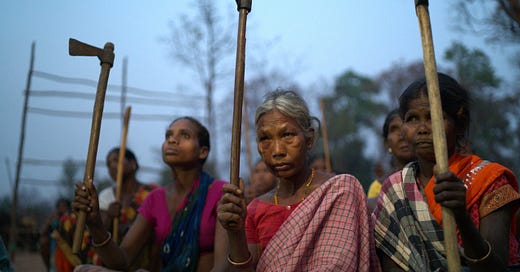The Polis Project Monthly
a round up of original research, reporting and analysis from the past month; a teaser of what is to come; and a quick word from our political editor
Hello hello! Following an election result that lifted all our spirits, the 18th Lok Sabha got off to a sobering start, underscoring the centrality of Hindutva in Indian politics today. In his maiden …
Keep reading with a 7-day free trial
Subscribe to The Polis Project to keep reading this post and get 7 days of free access to the full post archives.




